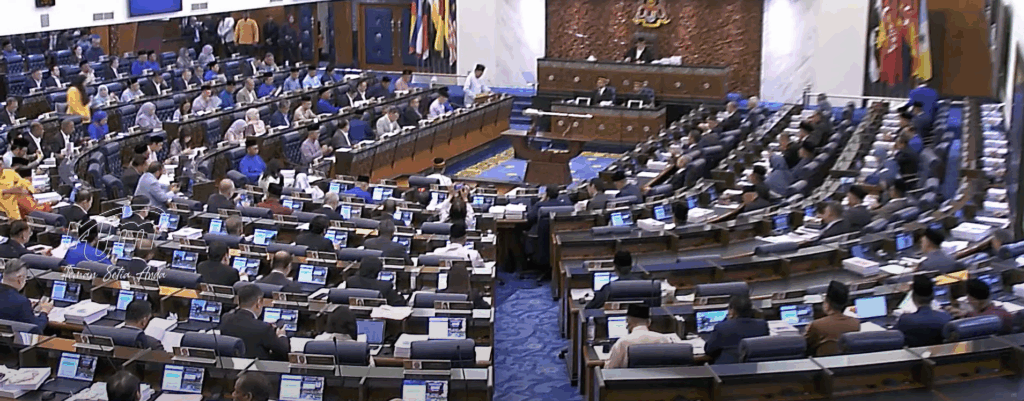
KUALA LUMPUR, Oct 10 (Bernama) — Malaysia’s economy is expected to grow between 4.0 and 4.8 per cent this year and between 4.0 and 4.5 per cent in 2026, according to Prime Minister Datuk Seri Anwar Ibrahim.
In the preface for the Economic Outlook 2026 released by the Ministry of Finance today, Anwar, who is also Finance Minister, said the economy expanded by 4.4 per cent in the first half of 2025, outpacing many peers equally burdened by tariff shocks.
“Growth has been broad-based: households continue to spend with confidence, investment is rising in both the public and private sectors, tourism activities are booming, and construction sites hum with activity.
“At the same time, the rakyat’s livelihoods are better protected. Unemployment has recorded the lowest level in a decade, inflation remains low, and the ringgit stands among the region’s most resilient currencies.
“Even in the face of a weakened global trading environment, our exporters are adapting and sustaining jobs at home,” he said.
— MORE
REPORT-ANWAR (PREFACE) 2 KUALA LUMPUR
Anwar said, despite various global challenges and uncertainties, Malaysia must not choose the path of least resistance, as the people have long called for genuine reform and for a government that balances external risks while addressing deep structural impediments at home.
“This administration embraces that moral duty. Guided by the MADANI Economy framework, our task is not only to steer the economy on a steady course, but also to restore dignity, uplift the quality of life and ensure progress is shared fairly among all Malaysians,” he said.
Regarding Budget 2026, Anwar said it is the fourth of the MADANI Budget series and the first under the 13th Malaysia Plan, 2026 – 2030 (13MP), which marks a passage from reform to transformation, charting a course where immediate recovery gives way to long-term renewal.
He said the strategic investments envisioned under the 13MP are fully aligned with the twin pillars of MADANI Economy: ‘Raising the Ceiling’ of national potential, while ‘Raising the Floor’ of living standards.
“They are designed to catalyse growth, elevate Malaysia’s role in global supply chains and enhance our human capital. In turn, they will deliver better wages, genuine opportunities for social mobility and a higher quality of life for the rakyat,” he said.
— MORE
REPORT-ANWAR (PREFACE) 3 KUALA LUMPUR
With the 13MP, Anwar said Malaysia will expand its expertise in high-growth high-value sectors – from artificial intelligence to renewable energy – positioning the nation at the technological frontier while securing sustainability for generations to come.
“As we prepare to welcome Visit Malaysia 2026 and conclude our Chairmanship of ASEAN, we do so with renewed purpose: to position Malaysia as a bridge-builder in the region, a trusted partner in the Global South as well as an advocate for fairer and more sustainable growth,” he said.
Meanwhile, the Economic Outlook 2026 indicates that Malaysia’s competitiveness increased significantly since 2024, catapulting 11 places to 23rd in the 2025 International Institute for Management Development (IMD) World Competitiveness Ranking.
“In the effort to reach among the top 12 in global competitiveness by 2033, trade diversification; stronger research, development, commercialisation and innovation (R&D&C&I); as well as streamlined regulations, enhanced governance and digital readiness are being prioritised,” it said.
In human development, the report said Malaysia’s Human Development Index (HDI) score rose to 0.819 in 2025, placing Malaysia at 67th globally.
— MORE
REPORT-ANWAR (PREFACE) 4 (LAST) KUALA LUMPUR
The report said continued investments in healthcare and education, as well as reduced inequality, remain critical in positioning the country within the top 25 HDI group.
“In 2024, the share of compensation of employees (CE) stood at 33.6 per cent, below the 45 per cent target. In narrowing this gap, initiatives such as the Progressive Wage Policy and skills upgrading are geared towards productivity-driven growth.
“Meanwhile, women’s participation in the labour market rose from 56.2 per cent in 2023 to 56.5 per cent in 2024. Expanding affordable childcare, flexible work arrangements, as well as upskilling and reskilling programmes, will be key to reaching the female labour force participation rate of 60 per cent,” it said.
In the meantime, Malaysia’s Corruption Perception Index (CPI) ranking remains unchanged at 57th in 2024 with a score of 50.
“However, in order to achieve the top 25 CPI position by 2033, the country has to score between 68 and 70 as stated in the National Anti-Corruption Strategy, 2024 – 2028 (NACS),” the report said.
— BERNAMA